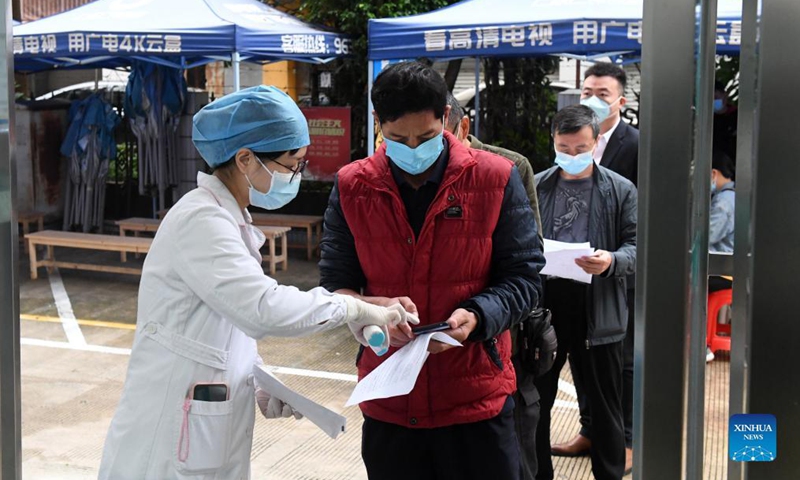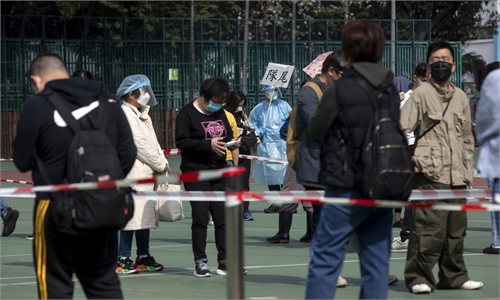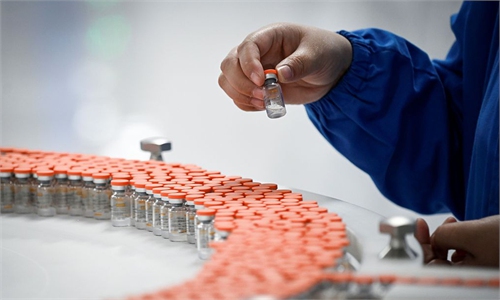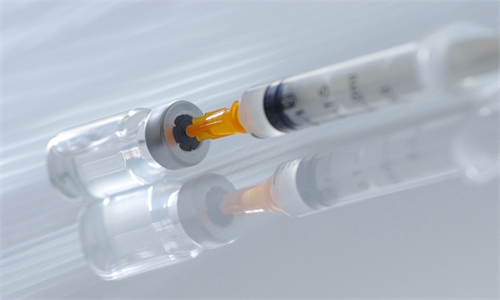
A medical worker checks the information of residents before they get booster shots of the COVID-19 vaccine at a community medical service center in Qingxiu District of Nanning, south China's Guangxi Zhuang Autonomous Region, Nov 2, 2021.Photo:Xinhua
Chinese researchers said that a third dose may be the "turning point" for repeated vaccination with inactivated SARS-CoV-2 vaccines made from the ancestral viral strain, providing scientific support for the national heterogeneous vaccination strategy that started recently.
The research was conducted by the First Affiliated Hospital of Sun Yat-sen University in Guangzhou, South China's Guangdong Province. They revealed the preprint version of the results of their study recently on the medrxiv.org website.
According to the study, which was conducted on 38 frontline healthcare workers who volunteered to receive a fourth homologous booster, a substantial decline in immune responses induced by a third dose of inactivated vaccines was observed.
When taking the immunity test six months after the third dose as a benchmark, the fourth dose could successfully recall the immune response against both ancestral virus strains and the Omicron variant, according to the study.
But the researchers said they also observed a clear suppression of humoral response to the fourth dose from a heightened immune response after the third dose. As the result of such suppression, peak levels of Neutralizing antibodies (NAbs) were all inferior to their counterparts after the third dose.
In conclusion, the study demonstrated that the fourth dose of inactivated SARS-CoV-2 vaccine is safe but the ability to further strengthen the protection against Omicron is compromised.
The researchers concluded that the data indicates the third dose is the "turning point" for repeated vaccination by inactivated SARS-CoV-2 vaccines made from the ancestral viral strain. Updated vaccines based on the variants of concern that take advantage of the receptor-binding domain, N-terminal domain and other antigenic domains would be an ideal alternative for future boosters, they suggested.
In the face of the dominant Omicron strain and the rapidly mutating virus, experts said that receiving booster shots is still an effective way to prevent infection.
Chinese authorities have started to provide vaccines based on different technologies for inactivated shot receivers. People who received inactivated vaccines produced by China National Biotec Group's institutes in Beijing and Wuhan or Sinovac Biotech can opt to accept a third shot of the same vaccine or a heterologous booster shot made by Anhui Zhifei Longcom or CanSinoBIO.
Some experts reached by the Global Times were concerned that even a fourth shot of a different vaccine is still not enough to prevent Omicron infection, citing data from Israel, where the world's first study on fourth shots was conducted.
Early data out of Israel has suggested that a fourth dose of either the Pfizer/BioNTech or Moderna coronavirus vaccine can bring an increase in antibodies - more than what's been seen after a third dose - but it still might not be enough to protect against breakthrough infections caused by the Omicron variant, CNN reported in January, citing Israeli researchers.
In response, Chinese vaccine producers are moving to speed up research and development of Omicron-specific shots. China's leading COVID-19 vaccine producer, Sinovac, is speeding up the development of a customized vaccine targeting the Omicron variant amid the growing Omicron risk worldwide, CEO Yin Weidong told the Global Times in a recent exclusive interview.



